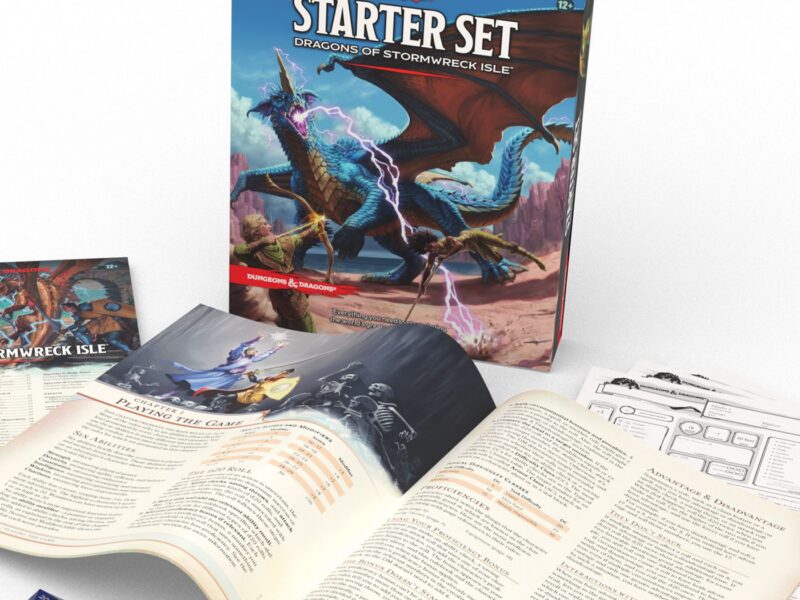What is a solo RPG?
From RPG Museum:
A solo role-playing game is one that is played by only one player, without even a GM. Although it is possible to play some games designed for group play as solos by using a GM emulator, the term is more often used of games that are designed to be played by only one person, such as Quill.
Targeted at those without a group to play a roleplaying game with, solo RPGs seek to emulate the adventure, mystery and tense, deadly moments of one as closely as possible. Largely relying on imagination and a player’s lust for exploration, focusing on it over complex mechanics and defined goals, solo RPGs are unique unto themselves.
Today, I’ll cover some of what a solo RPG is and isn’t. I’ll highlight some of the differences to other, more common mediums so that, hopefully, there’s no confusion in understanding just what a player can do on their own.
How is a solo RPG different than a TTPG or Board Game?
TTRPGs
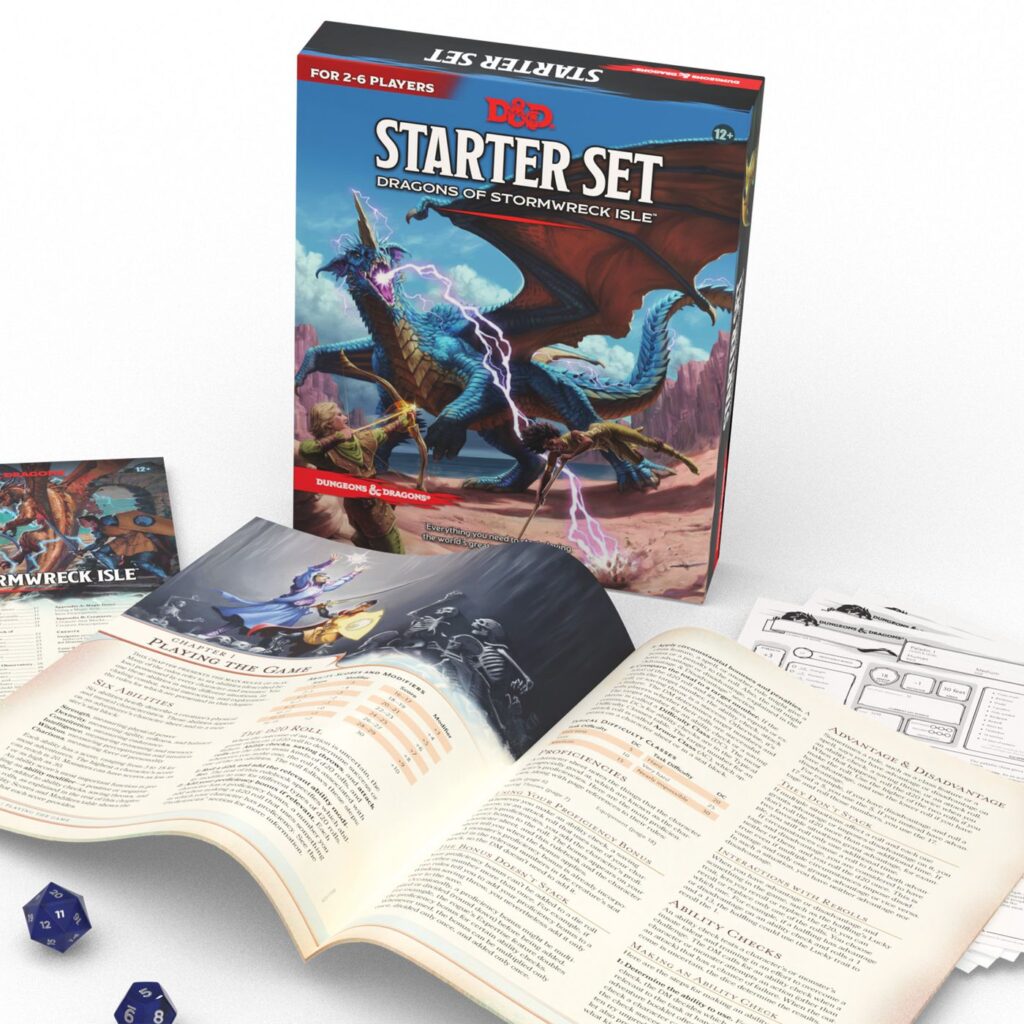
Let’s start with TTRPGs (Table Top Role Playing Games, e.g. Dungeons and Dragons). Years ago, when I happened to be getting into Dungeons and Dragons myself, I’d first heard the term solo RPG. I was confused; how could something emulate my cold, hard expression as I stared into my friends’ eyes while doing a ridiculous voice-over of a villain?
Well, the short answer is that it can’t. I knew there was no real emulation for player interaction, but what could a solo RPG offer then? My research began in earnest, and I scoured the web for answers.
Eventually, I found that it kind of can, at least mechanically replicating the roleplaying experience if not the acting part of it.
To further expand on that, lets define roleplaying:
From Wikipedia:A role-playing game (sometimes spelled roleplaying game, or abbreviated as RPG) is a game in which players assume the roles of characters in a fictional setting. Players take responsibility for acting out these roles within a narrative, either through literal acting or through a process of structured decision-making regarding character development. Actions taken within many games succeed or fail according to a formal system of rules and guidelines.
The key takeaway is that while a TTRPG is played with a group and literally acted out, a solo RPG is not. Just as an aside, it is perfectly fine to play a TTRPG with no acting, focusing on mechanics and playing the characters from a third-person point of view. It’s also possible to do practically only acting, leaving out the combat or keeping it extremely light.
In a game like Dungeons and Dragons, most of the work is on the Dungeon Master. They are tasked with creating the adventure or finding a pre-written one, but either way they have to memorize the most important aspects of it so that when players encounter it inch by inch in real-time, they can reveal it as they like in order to immerse the players.
TTRPG adventures are often complex and open-ended. The Dungeon Master knows everything while the players know nothing, so while the Dungeon Master paints the scene with a basic outline, it’s the interaction between DM and players that drives the story. Players are free to interpret, plan, and solve situations as they like, even skirting or thwarting them entirely or unknowingly, and that’s the point. The Dungeon Master has the final say on what’s possible, but the uncertainty of the outcome makes it fun for all.
With that said, can a solo RPG offer that sense of adventure of the unknown? Definitely, but differently.
RPG Board Games
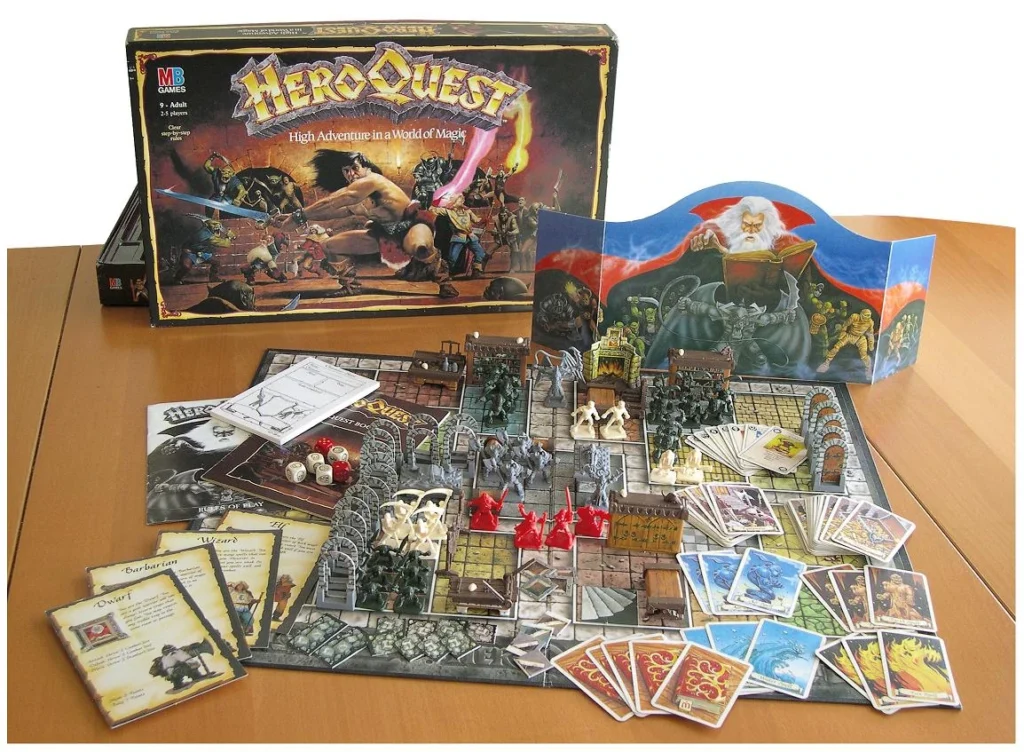
Let’s dive into board games next. Board games, as we know, are structured with specific rules and a defined start and end, usually within a couple of hours. But roleplaying actually has a long history with them. It dates back to a time when there weren’t as many games and mainstream roleplaying was rare, yet many enthusiasts were eager to experiment. In fact, some of the earliest roleplaying board games were born because the creators didn’t want to spend months playing a TTRPG, or couldn’t find a group to play with!
Eventually, a select few really embraced the idea of bringing roleplaying elements to the mainstream audience (HeroQuest [1989], Warhammer Quest [1995] and later, Descent [2005] are some early ones I know of). Several more attempted to bridge the gap between TTRPG and board games but were less successful for various reasons.
In recent years, there has been an explosion in all types of board games, roleplaying included. While they don’t usually carry the TTRPG definition of literal acting, though some have been getting closer, they embrace the mechanical side.
Roleplaying board games have players assume a hero and take on an adventure, usually in a dungeon or other area full of traps, monsters, and many other dangers. Adventures can be pre-written of even randomly generated. However, as board games, they stick to a script and neatly box each session into bite-sized portions. Some games may start each adventure fresh, while others may continue onward in long-form, what can be called a campaign. Some even seek to emulate the epic experience of a TTRPG, providing music, voice-over, branching story paths and epic combat.
One key difference between a board game and a solo RPG is that a board game is sold as a boxed product with all the necessary playing pieces, such as a board, tokens, miniatures, and dice. A solo RPG generally doesn’t have any of that and is usually nothing but a book or zine, largely relying on player imagination instead of physical components.
So then what’s a solo RPG? I still haven’t answered the questions around them, have I?
What to expect from Solo RPGs
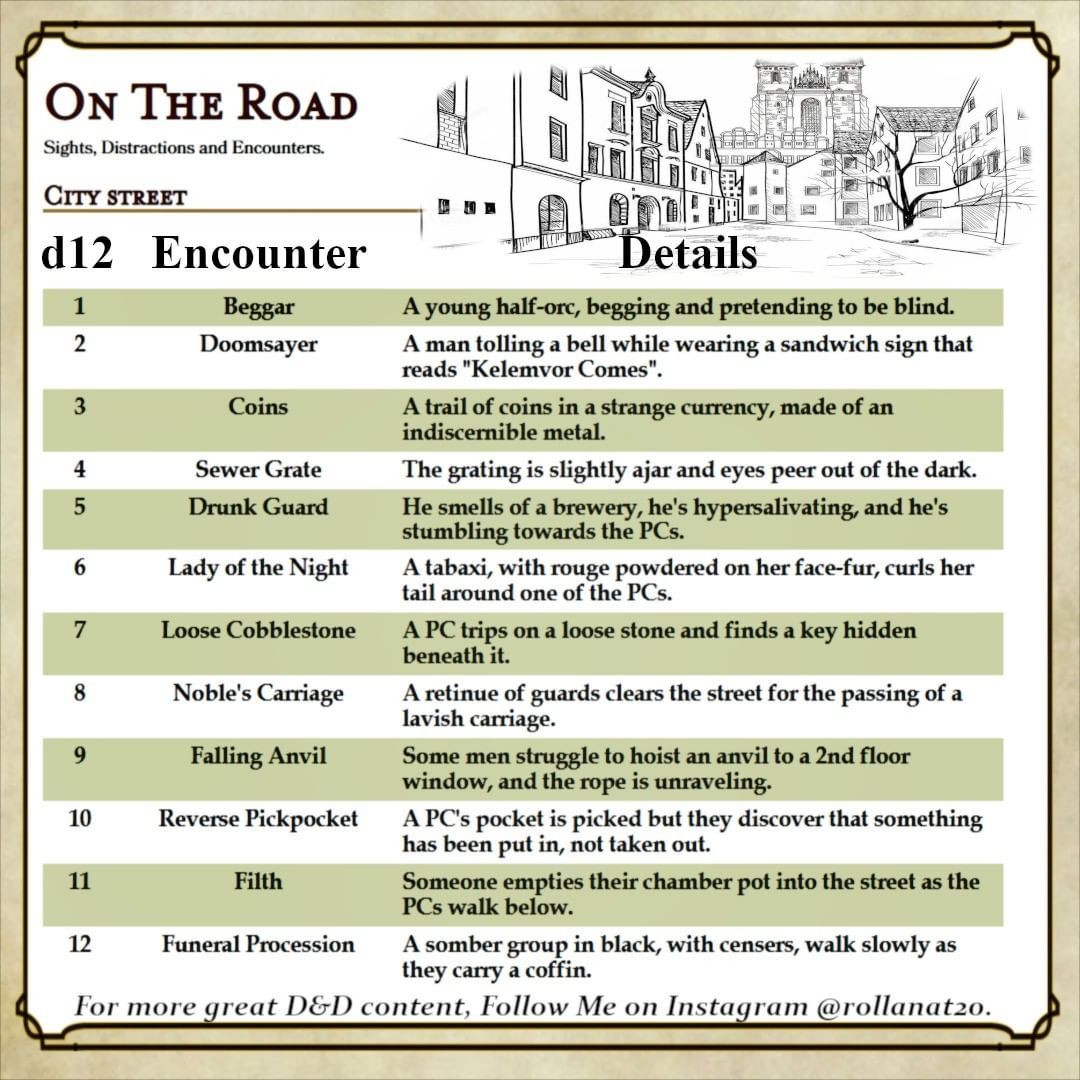
A solo RPG will sit somewhere in the middle of a TTRPG and a board game. There are times when the lines blur, however, and a good roleplaying board game can basically be a solo RPG. You could also use the components of a board game to do solo roleplaying; it’s pretty common.
Solo RPGs will have rules and mechanics similar to a TTRPG or board game, and some may even include basic playing pieces. When it comes to adventure, though, while you could solo through a pre-written adventure, you can also generate one on the fly. This is the real bread and butter of solo RPGs, but how is it done?
Tables. Lots and lots of tables.
By table, I mean literally a 2x? table keyed with numbers that reference available “options”, ranging from a name to a whole plot line. Many solo RPGs are completely dynamically driven by mixing and matching pieces of narrative construction material, asking players to make the story by rolling dice to create the missing details of what they find.
So lets put it together

In a solo RPG, you follow the game rules to create a character or choose a pre-made one, if available. These avatars are often more complex than a board game but less than a TTRPG.
Then, the game launches you into its world with either a vague objective or none at all. You weave the adventure on the fly by taking pieces from a “pool” and stringing them into a unique story. That story can even end in death or failure.
In such a way, the true goal of some solo RPGs is not necessarily to “win” but to tell a great story and have fun doing it. Again, the lines blur, and games that offer more or less structure are still considered solo RPGs as long as you’re the only one playing.
But wait a minute. If tables generate the story, could you use them to play Dungeons & Dragons solo? Well, not the way it’s meant to, but… It is possible to take the mechanical rules of D&D, combine them with objectives, tables, and charts from other source material to help generate the adventure, and then play it. So… sort of?
Quick Example
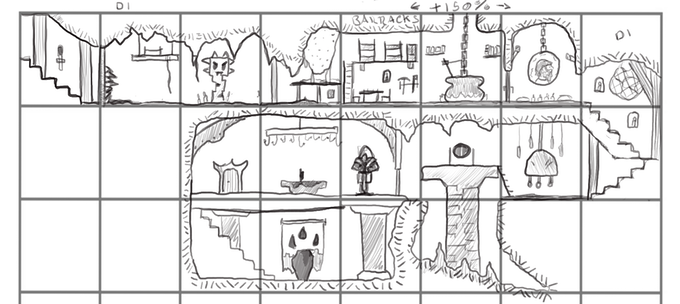
Perhaps you did want to try D&D solo. You create at least one character using the player’s handbook, though having three or four is recommended. Then, using the Dungeon Masters guide, you come up with an overarching quest. Let’s say a lich has taken over a small town on the Sword Coast and is raising the dead. You need to travel to the town to stop it. Maybe you have a book of tables and one is of town names, so you roll d100 (two ten-sided dice) and get… 42. Looking at entry 42 on the table, the town is called Farmington.
Next, let’s say you have another book of generic fantasy travel event tables. You roll and see what you find. Great… You trip on some dense forest and twist your ankle, and you move at half speed for the next day.
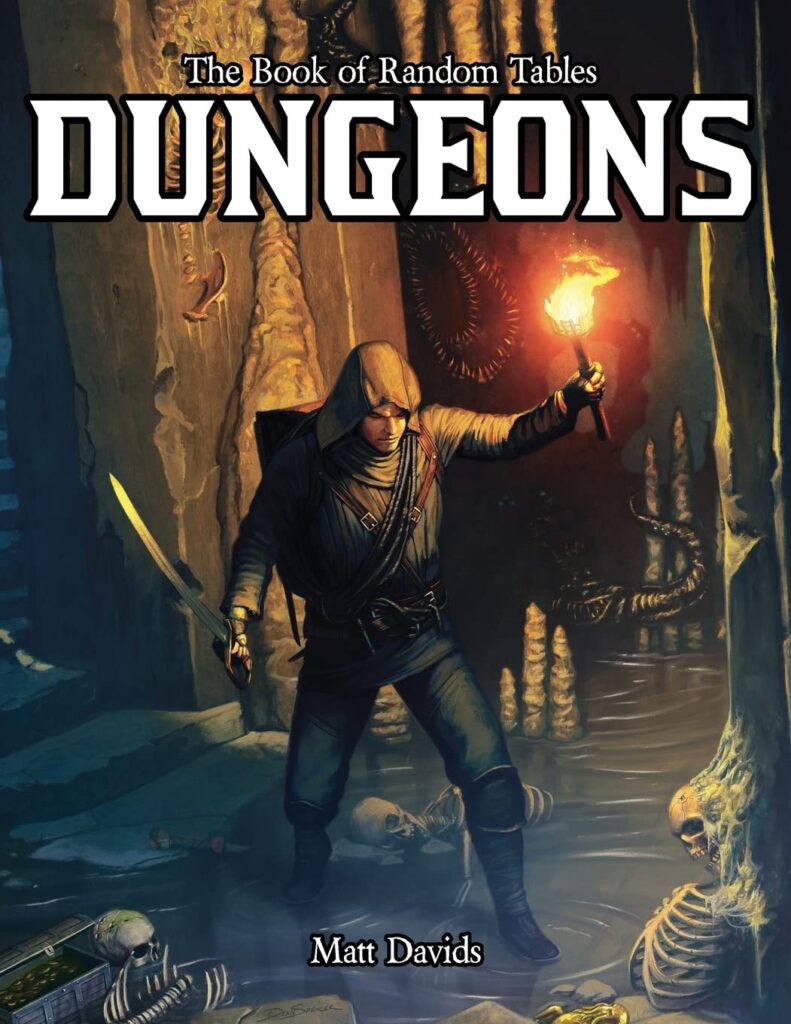
Using the Dungeon Masters Guide, you create an encounter against undead foes that would challenge a party of your strength, maybe a few zombies and animated shadows. You arrive in Farmington, then fight the foes on a battle map using regular D&D rules but controlling the enemies with some basic logic as well (something the DM would normally do, but zombies are dumb anyway).
Afterwards, perhaps you decide you should find something in the town. Maybe you have another book of events and roll on it to discover treasure, traps, or clues.
Eventually, you decide the lich’s lair is next, so you return to the Dungeon Master’s guide and create a dungeon using ideas and concepts in the guide, perhaps combining it with another book of tables. Perhaps each room of the dungeon has something unique, and you roll on even more tables to discover what they are.
Finally, the lich himself. Make another undead encounter and engage in combat!
It’s rough, and requires a lot of investment and imagination, but there you go: you successfully played a solo D&D adventure!
How to started with solo RPGs
The above example was a little complicated and convoluted. I’ll admit that the grey area of solo RPGs is one of my least favorite, as I prefer narrative and mechanical rails to guide my experience. Below, I’ll recommend a bunch of stuff for whatever style you might like. Maybe the open-ended complexity is right up your alley, or maybe you’re like me and would prefer some rails.
Tables Ahoy!
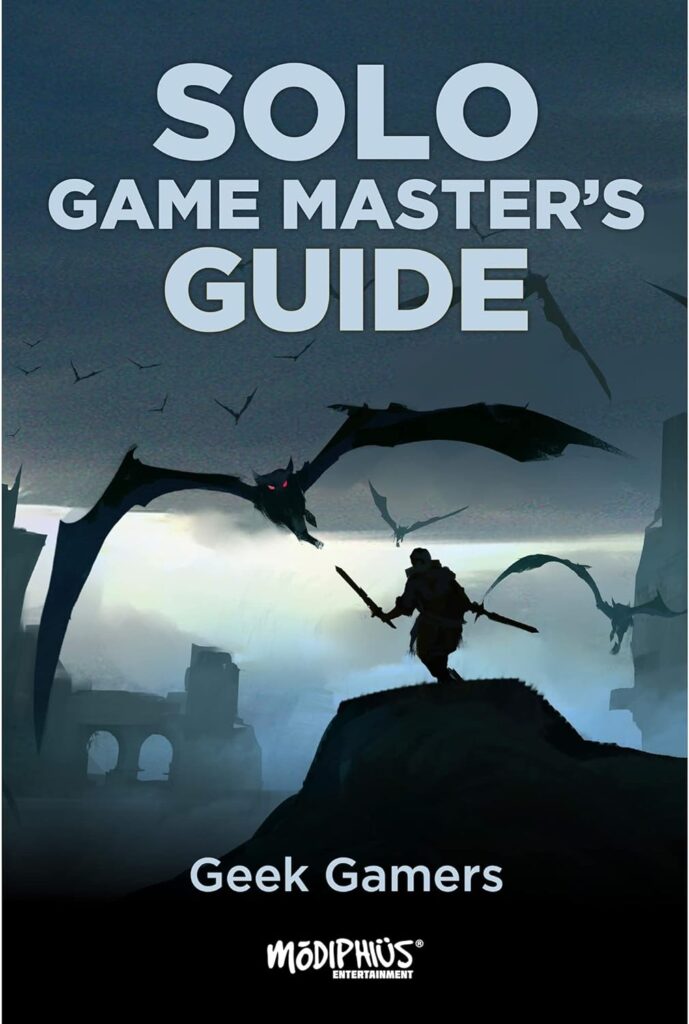
For those purely interested in tables to roll on, generating their own adventures:
- Solo Game Master’s Guide
- The Game Master’s Book of Astonishing Random Tables
- The Book of Random Tables: Inns and Taverns
- The Book of Random Tables: Dungeons
- The Book of Random Tables: Quests: Adventure Ideas
- The Great Book of Random Tables: 120 D100 Random Tables
- Dungeon Maps 5e: 120 Maps for Game Master to Plan & Customize Encounters
- Fantasy Maps Isometric Dungeons: Fantasy Maps for Game Master
These are just a few at the very tip of a titanic-sized iceberg. As you can see, there’s no shortage of material for anything you’d even think you’d need, but collecting it all, organizing it, and putting it to use is quite a chore.
Solo RPG game books
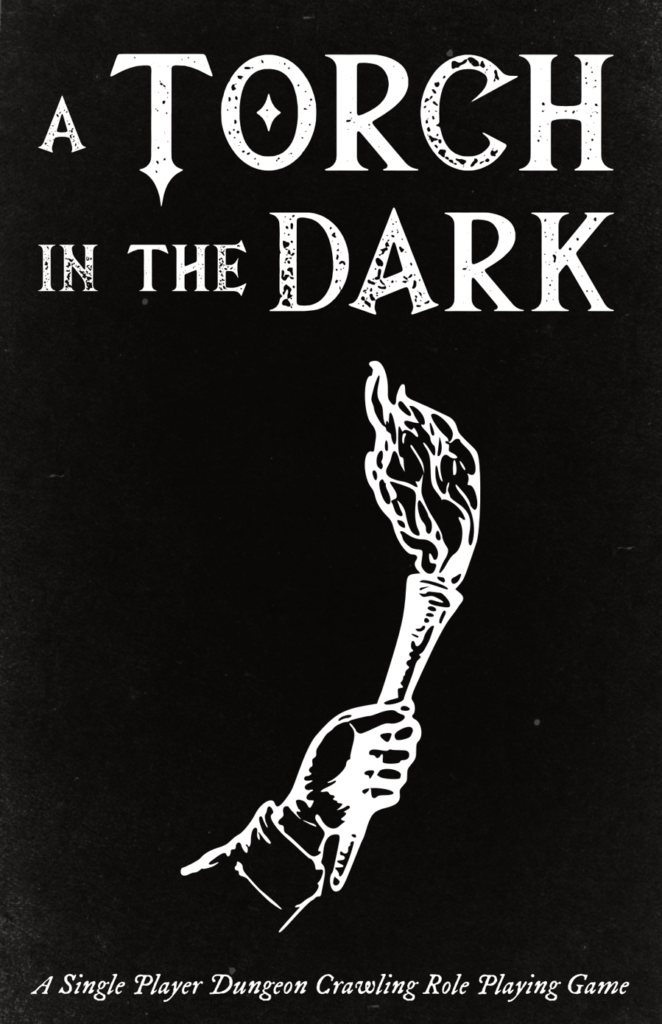
Instead, I recommend looking at self-contained games designed with solo roleplay in mind. Again, this is an ever-expanding and rapidly changing genre, especially in the last few years. Websites like itch.io have exploded and offer everything under the sun: big, small, complex, and simple.
Some of the ones I have personally enjoyed:
- Four Against Darkness (this one is cool because it has an old school Eye of the Beholder feel and provides the dungeon “pieces” that you draw on graph paper as you make your own dungeons)
- Rune
- A Torch in the Dark
- Across a Thousand Dead Worlds (complicated – it’s technically a full TTRPG with solo options)
RPG “choose your own adventure” novels
What about pre-written narratives with “choose your own adventure” style branches and RPG elements? Below are a couple of examples of game books. They’re about the size of a novel and offer light roleplaying rules while adventuring on a guided path that follows numbered entries.
- Fabled Lands: The War-Torn Kingdom (this one is actually quite interesting, it’s a book series that can be played individually or linked together if you have different editions)
- The Legion Of Shadow: DestinyQuest Book 1 (also a series, I only have the first but they’re HUGE, with tons of narrative as well as adventure)
RPG Board Games
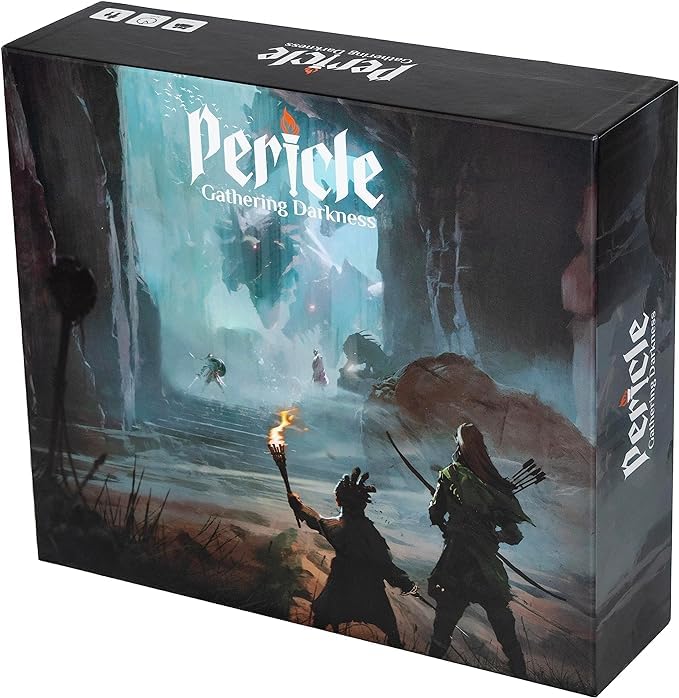
Lastly, since I previously mentioned the depth they’ve gotten to, lets take a look at some RPG board games. While they have a distinct focus on components and structure compared to solo RPGs, many combine the best of both worlds. I’ll list a few of my favorites below.
- Folklore the Affliction (pre-written stories but with random events and side quests, branching paths, pen and paper RPG elements, and an excellent “Van Helsing” theme)
- Shadows of Brimstone (endlessly expandable, endlessly replayable, has pre-written quests that build and reveal randomly along side random events)
- Dungeon Universalis (has the best character creation, complex roleplaying rules, and and long form campaign I’ve ever seen)
- Legacy of Dragonholt (light, easy to play, fun choose your own narrative adventuring through Fantasy Flight’s Terrinoth)
- Hexplore it (especially with the absolutely massive narrative campaign book expansions)
- Pericle (tries really hard to be D&D in a box, comes close, but still structured like a CYOA)
Where do I go next?
If this has been amazingly titillating but left you wanting more, or just more confused, it’s time to join the community. Many YouTube, Facebook, and other website groups have formed around RPGs, especially solo RPGs. I’ll mention a couple of them, but there are many that can offer much more information, suggestions, and examples. Good luck, adventurer!

